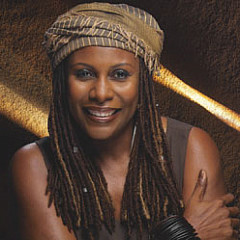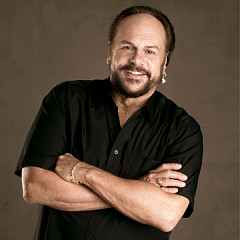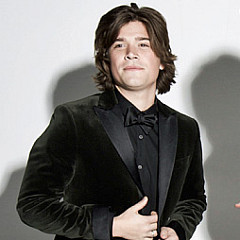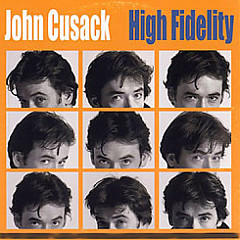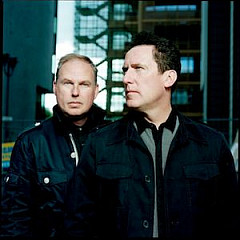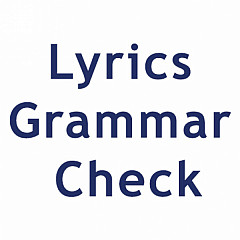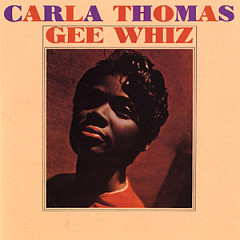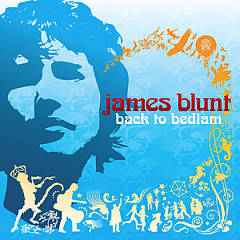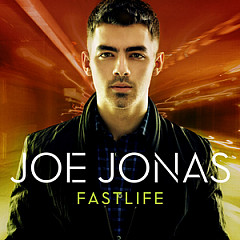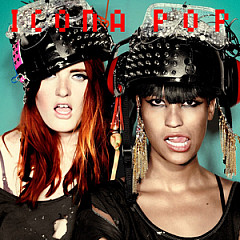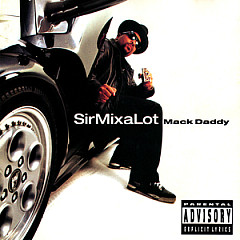By Roger C. Reale
 I was living with two roommates in a rented house. They would go out partying, and I would sit in my room with a notebook and write the songs that would become my first album. I'd go down to Trod Nossel Recording Studios in Wallingford, Connecticut, to see Bob Orsi from The Scratch Band every now and then, and he persuaded me to share my songs with the studio owner, Doc Cavalier. Eventually, I signed to Doc's label, Big Sound, and cut my first album, Radioactive, in 1978 with G.E. Smith and Hilly Michaels as "Roger C. Reale & Rue Morgue."
I was living with two roommates in a rented house. They would go out partying, and I would sit in my room with a notebook and write the songs that would become my first album. I'd go down to Trod Nossel Recording Studios in Wallingford, Connecticut, to see Bob Orsi from The Scratch Band every now and then, and he persuaded me to share my songs with the studio owner, Doc Cavalier. Eventually, I signed to Doc's label, Big Sound, and cut my first album, Radioactive, in 1978 with G.E. Smith and Hilly Michaels as "Roger C. Reale & Rue Morgue."In 1979, we recorded a second album, Reptiles In Motion, this time with Hilly, Jimmy McAllister and (I still find this hard to believe) Mick Ronson. That second album got stuck in the vaults and I'm happy to say both albums are finally being released this fall by Rave On Records. After Rue Morgue ended, I continued to make music. I've been fortunate to have had many of my songs (kudos to my co-writer Jon Tiven) covered by such blues greats as B.B. King, Buddy Guy, and Michael Burks. These days, I still play out with my band The Manchurians.
What is it about Primal Rock & Roll? Sometimes the stuff that sounds basic is more difficult to play. Primal Rock & Roll is anything that's revolutionary, rebellious and celebratory all in one. Could be guitars, bass, drums, piano or voice... there's no instrument that defines it. It's more the overall feel, the emotion of the song. The primal stuff is more emotional, less cerebral.
For the first Rue Morgue LP, Radioactive, we were going with what we were hearing at the time. We didn't feel like Rue Morgue was a punk band, but we were certainly ready to take advantage of moving with that crowd. Nick Lowe, Dave Edmunds, Motörhead, and some of those other people that were a little bit older that jumped on the wave. So while my songs reflected 1978 or 1979, I had a wider musical palette. These songs reflect some of those "primal" influences.
1) "Nadine" by Chuck Berry
The cadence of "Nadine" is irresistible:
As I got on a city bus and found a vacant seat
I thought I saw my future bride walking up the street
This is poetry of the highest order for me, with a vocal delivery to match.
We wound up recording Berry's "Dear Dad" for the first Rue Morgue LP and it was a nod to what he means to me as a lyricist. I didn't want to do the obvious; if you're going to do a cover like that, then you had better bend it and shape it a little bit. At the time, I didn't know of anyone else who had covered it, although Dave Edmunds cut a version after we had released ours.
2) "Good Golly Miss Molly" by Little Richard
This performance shook me to the core because it's revolutionary, rebellious and celebratory all in one, starting with that rolling piano intro, before moving into a totally unique vocal performance. I had never heard such a direct, crazed, almost otherworldly vocal before in my life. My youngest daughter is named after this song; it's the least I could do. Roger gets primal
Roger gets primal3) "Bo Diddley" by Bo Diddley
Chuck Berry, Little Richard, and Bo Diddley remain my Holy Trinity. I first heard Bo Diddley on Providence radio as a kid. Those jungle maracas and toms, all without a real lead guitar - just that pounding rhythm. Even the name Bo Diddley has a musical feel to it. The idea that you're going to call yourself Bo Diddley, or Little Richard, or Howling Wolf - those names were exotic, and I had to find out what the hell was going on with people that they would take those names.The Bo Diddley influence is clear in my song "Debutante Ball," especially those "Jerome Green" maracas that might just be the loudest thing on the mix!
4) "Not Fade Away" by The Rolling Stones
I know it's a Buddy Holly cover, but this was the lead track on their first US LP, England's Newest Hitmakers. The acoustic guitar opening - combined with the electric guitars - was a combination they used time and time again. But to open a record with "Not Fade Away," that struck me as something that hadn't happened before. And the Stones not only changed the way we looked at the world, they also helped expand our record collections by paying homage to the artists who influenced them.When it came time to do the cover art for my first LP, I wanted to emulate the back cover of England's Newest Hitmakers. I remember going to Hilly and G.E and telling them, "This is what we're going to do, we want this layout. Now pick who you want to pose." I think my pose was Brian Jones, G.E. might have been Mick Jagger, Hilly was Bill Wyman, and we designed the back cover to match. We even made up a bogus fan club. It might have been funny if enough people got to see it back then, but it remained sort of an in-joke.

5) "Hoochie Coochie Man" by Muddy Waters
Muddy Waters at Newport 1960 and The Best of Muddy Waters were huge influences on me, and I wore both of those records out. Vocally, he's all you need. The stark realism, the drama, and especially the vocal delivery are what do it for me on "Hoochie Coochie Man." It's half conversational; Muddy gets your attention without overdoing it. And those lyrics about "a gypsy woman" always felt kind of fascinating. At 13, I was drawn to it, that's for sure. And still even today.I was always drawn to the harmonica, and Muddy Waters always had great harmonica players like Billy Boy Arnold and Little Walter. The harmonica was the first instrument I actually tried to play, because it was deceptively simple. Then when you hear people like Bob Orsi or Paul Butterfield or Little Walter, you realize it's a pretty complicated thing.
6) "Hush Hush" by Jimmy Reed
The hypnotic guitar and snare coupled with Reed's ethereal trademark harmonica are pure bliss. I'd say Jimmy Reed deserves a closer look as a pioneer of rock 'n' roll. He had a danceable approach to his songs before it really was rock 'n' roll, so he really helped to define it. The Manchurians, my current band, probably take the Jimmy Reed mantle more than anything I ever did with Rue Morgue7) "Rosalyn" by Pretty Things
 At the time I used to keep a list of British bands that I would read about. The records were hard to find here in the States, so I used to bring my list to record shops and start looking for this stuff (a lot of them were on the Fontana label). When I finally found the Pretty Things' first album, I stared at the cover, thinking they looked even more rebellious than The Stones. What the hell could this sound like?
At the time I used to keep a list of British bands that I would read about. The records were hard to find here in the States, so I used to bring my list to record shops and start looking for this stuff (a lot of them were on the Fontana label). When I finally found the Pretty Things' first album, I stared at the cover, thinking they looked even more rebellious than The Stones. What the hell could this sound like?"Rosalyn" had that Bo Diddley feel I love, but it was even more frenetic. Phil May's vocal was just out there. Keith Moon cited their wild man drummer Viv Prince as an influence, so you can get an idea of what Viv Prince must have been like. John Stax was a very underrated bass player, only because The Pretty Things were sort of under the radar. Stax's approach to the bass was definitely an influence on me, and when I first got my bass I used to play along to The Pretty Things and the first Stones albums.
8) "My Generation" by The Who
Not an obscure one, but when I got The Who Sings My Generation I was completely attracted to their complete sense of abandon, and the idea of controlled chaos. They had an advantage over all the others who dared a similar approach: they had Pete Townshend's songs.This was a band that approached everything in a different way. You had sort of a lead bass player and a rhythm guitar player, and a lead drummer with no hi-hat. "My Generation" had no lead guitar, but a lead part played on the bass. It also had a bass breakdown, and unless you listened to a lot of jazz, there were no bass breakdowns in pop music. I remember playing the end of that track over and over and over again, because you could hear the feedback of the guitar, which was so exciting to listen to. In those days, you weren't supposed to have an outro that was pure noise.
The Who, of course, also looked great in their mod clothes. I remember getting a white sweatshirt and making a bullseye sweatshirt with a magic marker.
9) "Tin Soldier" by Small Faces
Me sing like Marriott? Never gonna happen, but if you added an organ to "Make It Be Over" on the Reptiles LP, maybe the Small Faces influence would become more obvious. It was definitely on my mind.
10) "Gudbuy T'Jane" by Slade
"Gudbuy T'Jane" really had an influence on the Radioactive LP and to what we were trying to do, particularly with "Stop and Go." For sure, there's a direct connection.Nobody sings like Noddy Holder, but the first things I listen to are the drums - all the bands that I like have great drummers. Slade's Don Powell had a unique kind of shuffle. Hilly Michaels and I both liked Slade at a time when they were sort of off the radar in the States, and that was captured by the way Hilly played on both of the Rue Morgue albums. If there's anything that ties Radioactive to Reptiles In Motion, it's the drums and bass. That's the way Hilly and I played.
Honorable Mentions:
"I'm Crying" by The Animals, "Heart Full of Soul" by The Yardbirds. There's no Beatles here, but they certainly were always there. There are others, but this list crystallizes it for me, and it gets every artist that was a primal influence on me. They are my comfort zone, my go-to zone for influence and inspiration, and I still listen to these records, even today.
September 23, 2019
The Rue Morgue compilation The Collection arrives October 18, 2019 - you can get it on Amazon. Here's the teaser video.
More Song Writing

